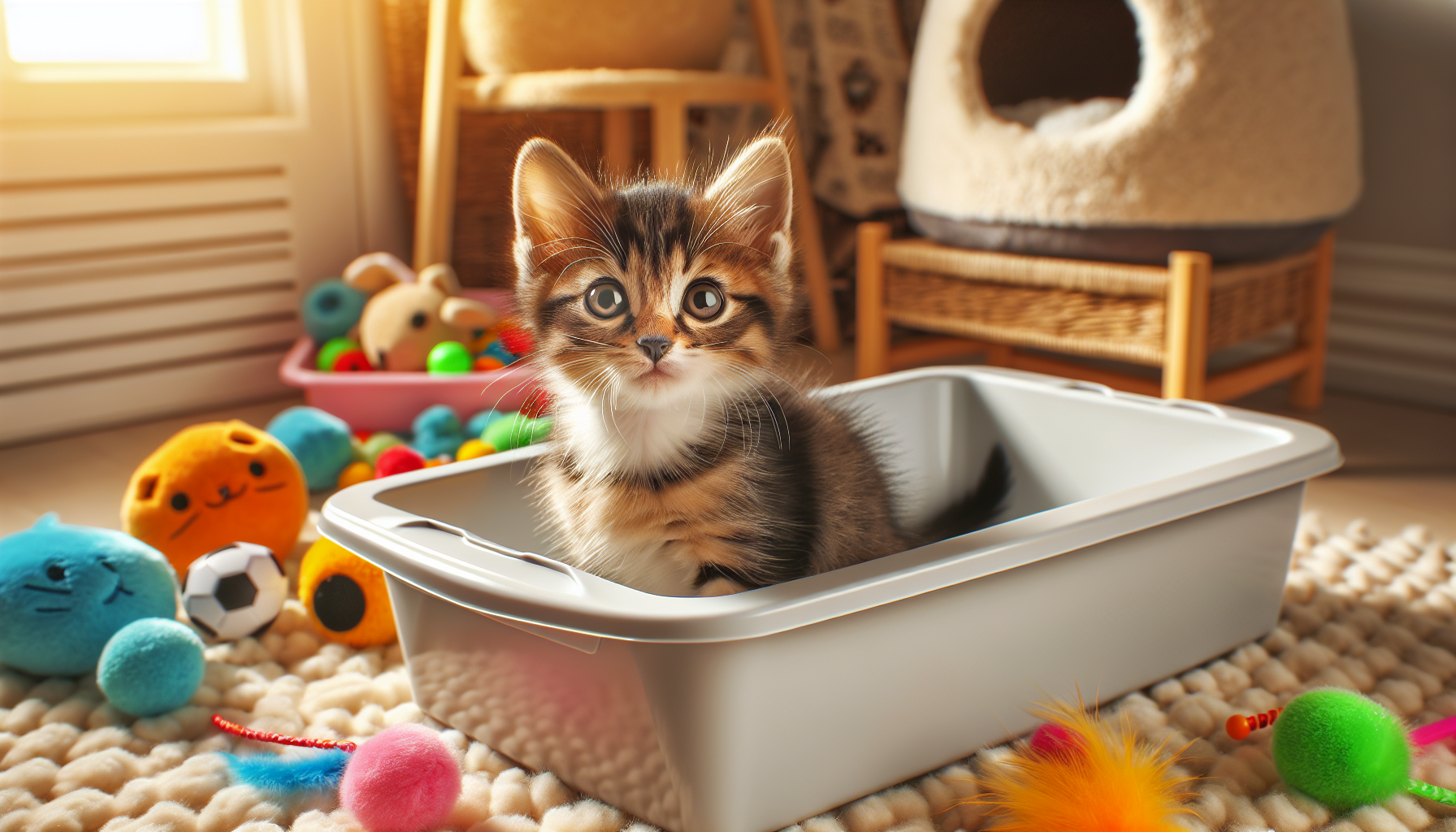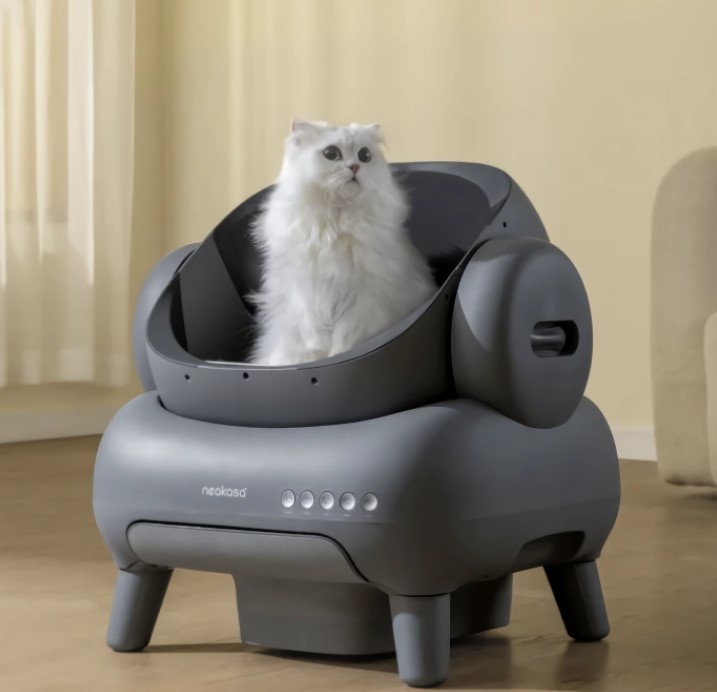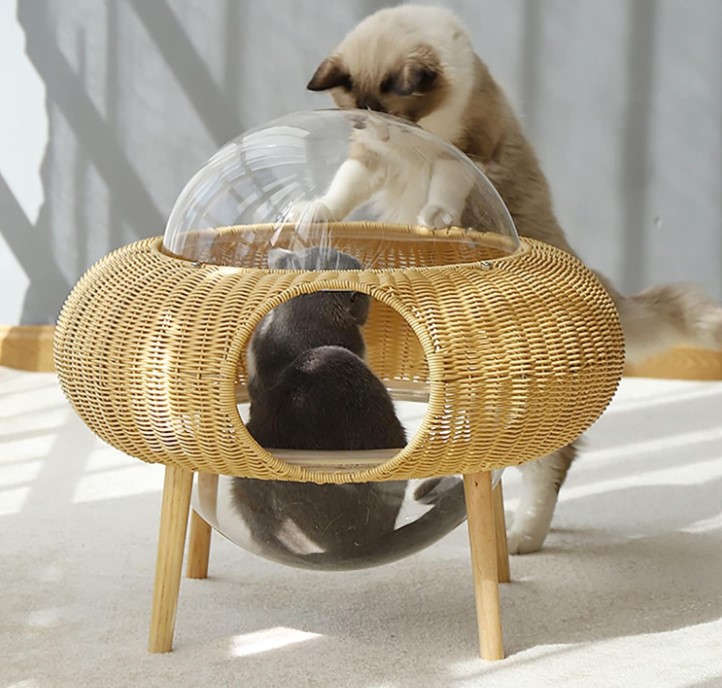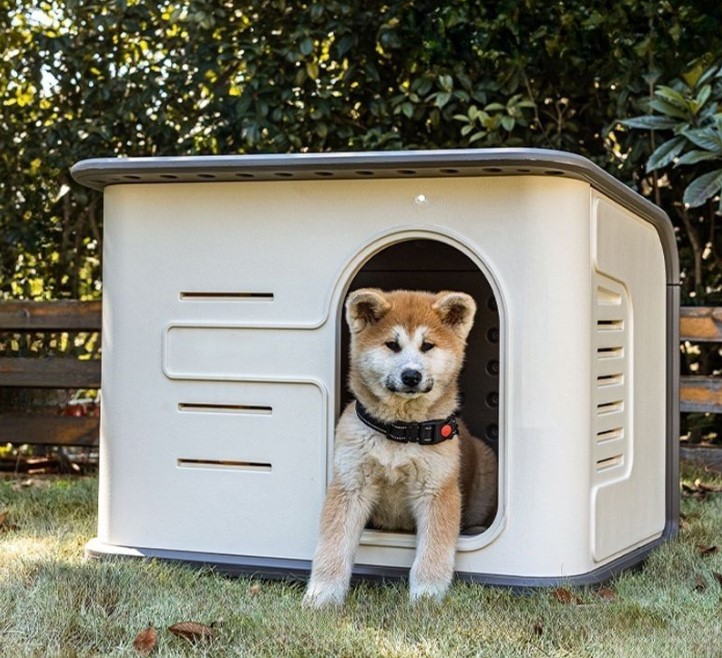Help Your Kitten Break the Litter Box Habit and Thrive

Congratulations on bringing home your new furry friend! As a new cat owner, you’re probably excited to provide a loving and comfortable environment for your kitten. However, you may have noticed that your little bundle of joy has developed a peculiar habit – spending too much time in the litter box. Don’t worry, this is a common quirk in kittens, and with the right approach, you can help your kitten break this habit and develop good litter box habits. In this article, we’ll explore the reasons behind this behavior, identify potential underlying causes, and provide practical tips and tricks to encourage your kitten to use the litter box correctly.
Understanding your kitten’s behavior is crucial in addressing this issue. By recognizing the reasons behind their actions, you can tailor your approach to meet their unique needs. Whether it’s due to instinctual behavior, stress and anxiety, or underlying health issues, we’ll delve into the possible causes and provide guidance on how to create a positive environment that encourages good habits.
By the end of this article, you’ll be equipped with the knowledge and tools to help your kitten develop healthy litter box habits. With patience, consistency, and positive reinforcement, you can break the litter box habit and create a happy and healthy environment for your furry friend. So, let’s dive in and start your kitten’s journey to litter box success!
1. Welcome to Your New Furry Friend’s Quirks!
Congratulations on bringing home your new furry friend! As a new cat owner, you’re probably thrilled to provide a loving and comfortable environment for your kitten. However, you may have noticed that your little bundle of joy has developed a few quirks, including an unusual fondness for the litter box. Don’t worry, this is a common phenomenon in kittens, and understanding the reasons behind their behavior is key to addressing the issue.
Kittens are natural-born explorers, and their curious nature often leads them to discover new hideaways and cozy spots. The litter box, with its sturdy walls and soft bedding, can be a tantalizing haven for your kitten. Additionally, kittens may also be driven by their instincts to seek out enclosed spaces, reminiscent of their mother’s womb. By recognizing these natural instincts, you can begin to address the issue and provide alternative comfort zones for your kitten.
By understanding the reasons behind your kitten’s behavior, you can tailor your approach to meet their unique needs. Whether it’s providing a cozy alternative to the litter box or simply giving them extra attention and playtime, you can help your kitten feel happy and secure. Remember, every kitten is different, and with patience and love, you can help your furry friend develop healthy habits and a lifelong bond with you.
Instinctual Behavior: The Litter Box as a Safe Haven
In the wild, cats often rely on enclosed spaces to hide from predators, escape harsh weather, and even give birth. This natural instinct to seek out safe havens is deeply ingrained in kittens, and they may exhibit this behavior in your home. The litter box, with its sturdy walls and soft bedding, can be a tantalizing sanctuary for your kitten. It’s not uncommon for kittens to retreat to the litter box when they feel overwhelmed, scared, or simply need a quiet moment to themselves.
Kittens may also be drawn to the litter box due to its similarity to their mother’s womb. The enclosed space and soft texture can provide a sense of security and comfort, reminiscent of their early days in the womb. As a result, your kitten may feel an instinctual urge to return to this safe space, often leading to extended periods of lounging in the litter box.
By recognizing this instinctual behavior, you can begin to provide alternative safe spaces for your kitten. Whether it’s a cozy cat bed, a hidden cave, or a vertical perch, you can help your kitten feel secure and comfortable without relying on the litter box. By doing so, you can encourage your kitten to develop healthy habits and a stronger bond with you, all while respecting their natural instincts.
Adjusting to a New Environment: Stress and Anxiety in Kittens
Bringinging a new kitten home can be a thrilling experience, but it can also be a daunting one for your little furry friend. The transition to a new environment can be overwhelming, leading to stress and anxiety in kittens. Sudden changes, such as new sights, sounds, and smells, can be difficult for your kitten to process, causing them to feel uneasy and uncertain.
As a result, your kitten may exhibit unusual behavior, such as excessive hiding, avoidance, or even increased time spent in the litter box. This is a natural response to feelings of insecurity and discomfort. By recognizing the signs of stress and anxiety, you can take steps to create a more welcoming and comfortable environment for your kitten. Providing a stable and predictable routine, along with plenty of love and attention, can help your kitten feel more secure and relaxed.
By acknowledging the potential stress and anxiety associated with environmental changes, you can proactively take steps to minimize your kitten’s discomfort. By doing so, you can help your kitten adjust to their new surroundings, develop healthy habits, and build a strong bond with you. Remember, every kitten is different, and with patience and understanding, you can create a happy and harmonious home for your furry friend.
2. Identifying Underlying Causes: Is it More than Just a Quirk?

When it comes to your kitten’s litter box habits, it’s essential to rule out any underlying health issues that may be contributing to their behavior. Sometimes, what appears to be a quirky habit can be a sign of a more serious issue, such as a urinary tract infection or digestive problem. By consulting with your veterinarian, you can identify any potential health issues and address them promptly.
In addition to health issues, other factors may be contributing to your kitten’s litter box behavior. For example, changes in their environment, such as a new pet or person in the home, can cause stress and anxiety, leading to changes in their behavior. Even something as simple as a dirty litter box or a lack of hiding places can contribute to your kitten’s behavior. By taking a holistic approach and considering all the possible factors, you can identify the root cause of your kitten’s behavior and take steps to address it.
By identifying the underlying causes of your kitten’s behavior, you can take proactive steps to create a more comfortable and happy environment for them. Whether it’s providing extra attention and playtime, creating a more peaceful environment, or simply ensuring the litter box is clean and well-maintained, you can help your kitten feel more secure and relaxed. By doing so, you can encourage healthy habits and a stronger bond with your furry friend.
Health Issues: Signs of Illness or Discomfort
As a responsible and caring cat owner, it’s essential to monitor your kitten’s behavior and health. Sometimes, a change in litter box habits can be a sign of an underlying health issue. If your kitten is spending more time in the litter box, it’s crucial to check for signs of illness, discomfort, or pain. According to the ASPCA, common signs of health issues in kittens include changes in appetite, vomiting, diarrhea, lethargy, and increased hiding or avoidance.
If you suspect that your kitten’s litter box behavior is related to a health issue, it’s essential to consult with your veterinarian. They can perform a physical examination, take a complete medical history, and run diagnostic tests to identify any underlying health issues. By working together, you can identify the root cause of your kitten’s behavior and develop a plan to address it. Whether it’s treating a urinary tract infection, managing chronic pain, or simply providing extra care and attention, you can help your kitten feel more comfortable and happy.
By being proactive and monitoring your kitten’s health, you can catch any potential issues early and provide the best possible care for your furry friend. Remember, your kitten’s health and well-being are in your hands, and with the right guidance and support, you can help them thrive. By prioritizing your kitten’s health, you can build a strong and loving bond that will last a lifetime.
Litter Box Maintenance and Hygiene
A clean and well-maintained litter box is essential for your kitten’s health and happiness. A dirty litter box can be a breeding ground for bacteria and odors, making it an unappealing place for your kitten to do their business. By keeping the litter box clean, you can reduce the appeal of lounging in it and encourage your kitten to use it for its intended purpose. Scoop the litter box daily, and change the litter completely every 7-10 days to keep it fresh and clean.
A clean litter box can also help reduce stress and anxiety in your kitten. When the litter box is dirty, it can be overwhelming and uncomfortable for your kitten, leading them to seek out other places to relax. By keeping the litter box clean, you can provide a comfortable and welcoming space for your kitten to do their business. Additionally, a clean litter box can help reduce the risk of health problems, such as urinary tract infections and parasites.
By making litter box maintenance a priority, you can create a happy and healthy environment for your kitten. Remember, a clean litter box is not only important for your kitten’s health, but also for their happiness and well-being. By taking a few minutes each day to scoop and clean the litter box, you can provide a comfortable and welcoming space for your kitten to thrive.
3. Creating a Positive Environment: Encouraging Good Habits
Creating a positive environment for your kitten is key to encouraging good habits and discouraging lounging in the litter box. By making a few simple changes to your kitten’s environment, you can promote a healthy and happy lifestyle. Start by providing plenty of attention and playtime, as kittens who are bored or lack stimulation may be more likely to lounge in the litter box. You can also try adding toys and scratching posts to keep your kitten engaged and active.
In addition to providing plenty of stimulation, you can also make changes to your kitten’s environment to discourage lounging in the litter box. Try adding a few comfortable hiding places, such as tunnels or boxes, to provide your kitten with alternative places to relax. You can also try placing a litter box in a quiet, low-traffic area to reduce stress and anxiety. By making these simple changes, you can create a positive environment that promotes good habits and discourages lounging in the litter box.
Positive reinforcement is also a powerful tool in encouraging good habits. When your kitten uses the litter box correctly, be sure to reward them with praise and treats. This can help reinforce good behavior and encourage your kitten to continue using the litter box appropriately. By combining positive reinforcement with environmental changes, you can create a positive and supportive environment that promotes healthy habits and a happy lifestyle for your kitten.
Provide Alternative Comfort Zones: Cozy Spaces and Vertical Expansion
Providing alternative comfort zones for your kitten can help reduce litter box lounging and promote a healthy and happy lifestyle. Cats are natural-born climbers and love to perch themselves in high places, so consider adding vertical spaces to your home. This can include cat towers, shelves, or even just a few stacked boxes. By providing these elevated spaces, you can give your kitten a sense of security and comfort, while also encouraging them to leave the litter box behind.
In addition to vertical spaces, you can also create cozy comfort zones for your kitten. This can include soft blankets, plush toys, and warm hiding places. Consider setting up a few
Play, Exercise, and Stimulation: Keeping Your Kitten Active
Play, exercise, and mental stimulation are essential for keeping your kitten active and engaged. When kittens are bored or lack stimulation, they may be more likely to lounge in the litter box. By providing a variety of playful activities and stimulation, you can help reduce the appeal of the litter box and encourage your kitten to explore and engage with their surroundings. Try playing with your kitten using toys, feather wands, or laser pointers, and rotate toys regularly to keep things fresh and exciting.
In addition to play, providing mental stimulation is also important for keeping your kitten engaged. You can do this by providing puzzle toys filled with treats, hiding treats around the house, or even creating a scavenger hunt. Mental stimulation can help challenge your kitten’s problem-solving skills and keep them engaged and active. By providing a combination of play and mental stimulation, you can help reduce the appeal of the litter box and promote a healthy and happy lifestyle.
Remember, every kitten is different, so be sure to observe your kitten’s preferences and tailor your play and stimulation activities accordingly. By engaging your kitten in play and providing mental stimulation, you can help create a positive and active environment that promotes healthy habits and discourages lounging in the litter box. With a little creativity and patience, you can help your kitten thrive and develop a lifelong love of play and exploration.
4. Litter Box Training 101: Tips and Tricks for Success
Litter box training is a crucial part of responsible pet ownership, and with a few simple tips and tricks, you can help your kitten develop good habits and a lifelong love of using the litter box correctly. First, choose a litter box that’s the right size for your kitten, and make sure it’s clean and easily accessible. You can also try placing the litter box in a quiet, low-traffic area to reduce stress and anxiety.
Next, create a routine and stick to it. Kittens thrive on routine, so try to scoop the litter box at the same time every day and change the litter completely every 7-10 days. You can also try rewards-based training, such as praising and rewarding your kitten with treats when they use the litter box correctly. By creating a positive association with the litter box, you can help your kitten develop good habits and a lifelong love of using the litter box correctly.
Remember, litter box training is a process that requires patience, consistency, and positive reinforcement. By following these simple tips and tricks, you can help your kitten develop good habits and a happy, healthy relationship with the litter box. And don’t forget to be patient with your kitten – accidents will happen, but with time and practice, your kitten will learn to use the litter box correctly and develop a lifelong love of cleanliness and hygiene.
Litter Box Size and Type: Choosing the Right One for Your Kitten
When it comes to litter box training, choosing the right litter box size and type can make all the difference. A litter box that’s too small or uncomfortable can lead to accidents and discourage your kitten from using it correctly. On the other hand, a litter box that’s just the right size and type can encourage good habits and reduce accidents.
So, how do you choose the right litter box for your kitten? First, consider the size of your kitten. A general rule of thumb is to choose a litter box that’s at least 1.5 times the length of your kitten. You should also consider the type of litter box, such as a covered or uncovered litter box, and the type of litter, such as clumping or non-clumping. Some kittens may prefer a certain type of litter or litter box, so it’s a good idea to try out a few different options to see what works best for your kitten.
By choosing the right litter box size and type, you can help encourage good habits and reduce accidents. Remember, every kitten is different, so it’s important to observe your kitten’s preferences and adjust your litter box accordingly. With a little patience and experimentation, you can find the perfect litter box for your kitten and help them develop a lifelong love of using the litter box correctly.
Rewarding Good Behavior: Positive Reinforcement Techniques
Positive reinforcement is a powerful tool in litter box training, and can help encourage your kitten to use the litter box correctly. By rewarding your kitten with treats, praise, and affection when they use the litter box correctly, you can create a positive association with the behavior and encourage them to repeat it. This can be especially effective in the early stages of litter box training, when your kitten is still learning to associate the litter box with their waste elimination.
One of the most effective ways to use positive reinforcement in litter box training is to use a reward system. This can be as simple as giving your kitten a treat or piece of food whenever they use the litter box correctly, or as complex as creating a reward chart or system to track their progress. By consistently rewarding good behavior, you can help your kitten learn to associate the litter box with positive outcomes, and encourage them to use it correctly.
Remember, positive reinforcement is all about creating a positive and encouraging environment for your kitten. By focusing on rewarding good behavior, rather than punishing bad behavior, you can help your kitten develop a lifelong love of using the litter box correctly. So be sure to praise and reward your kitten whenever they use the litter box correctly, and watch as they learn to associate the behavior with positive outcomes.
5. Conclusion: A Happy and Healthy Kitten is Just Around the Corner
Congratulations on making it to the end of our litter box training journey! By now, you’ve learned the importance of understanding your kitten’s behavior, creating a positive environment, and using positive reinforcement to encourage good habits. Remember, every kitten is different, and it’s okay to take things at your own pace. With patience, consistency, and love, you can help your kitten develop a lifelong love of using the litter box correctly.
As you move forward, remember to stay positive and encouraging. Celebrate your kitten’s successes, no matter how small, and don’t be too hard on them when they make mistakes. With time and practice, your kitten will learn to use the litter box correctly, and you’ll be rewarded with a happy and healthy companion. So keep up the good work, and don’t hesitate to reach out for help if you need it.
In the end, litter box training is all about creating a positive and loving environment for your kitten. By following the tips and tricks outlined in this article, you can help your kitten develop good habits and a lifelong love of using the litter box correctly. So go ahead, give your kitten a big hug and a treat, and celebrate the start of a beautiful and happy journey together!
Patience and Consistency: The Keys to Success
When it comes to helping your kitten break the litter box habit, patience and consistency are the keys to success. It’s essential to remember that your kitten is still learning and developing good habits, and it may take some time for them to adjust to new routines and environments. By being patient and understanding, you can help your kitten feel more comfortable and confident, which can in turn help them to overcome their litter box habits.
Consistency is also crucial in helping your kitten break the litter box habit. By establishing a regular routine and sticking to it, you can help your kitten learn what is expected of them and when. This can include regular feeding times, playtime, and sleep schedules, as well as regular cleaning and maintenance of the litter box. By being consistent, you can help your kitten feel more secure and develop good habits that will last a lifetime.
Remember, helping your kitten break the litter box habit is a journey that requires time, effort, and patience. By being consistent and patient, you can help your kitten overcome their litter box habits and develop a lifelong love of using the litter box correctly. So don’t get discouraged if progress is slow – keep moving forward, and with time and practice, your kitten will learn to use the litter box correctly and develop good habits that will last a lifetime.
Seeking Professional Help: When to Consult a Veterinarian
While it’s natural to feel frustrated or concerned when your kitten is struggling with litter box habits, it’s essential to know when to seek professional help. As a responsible and caring pet owner, recognizing the signs of a more serious issue can make all the difference in your kitten’s health and well-being. If you’ve tried addressing the behavior on your own and seen no improvement, or if your kitten is exhibiting other symptoms such as vomiting, diarrhea, or blood in their stool, it’s time to consult a veterinarian. [Source: PetMD]
A veterinarian can help you rule out any underlying medical issues that may be contributing to your kitten’s litter box habits. They can also provide guidance on how to address the behavior and offer additional support and resources. Remember, your veterinarian is a valuable partner in your kitten’s health and well-being, and seeking their help is a sign of responsible and caring pet ownership.
By seeking professional help when needed, you can ensure that your kitten receives the care and attention they need to thrive. So don’t hesitate to reach out to your veterinarian if you’re struggling to address your kitten’s litter box habits – with their help, you can work together to find a solution and give your kitten the happy and healthy life they deserve.
How long does it take to litter train a kitten?
The time it takes to litter train a kitten can vary depending on the individual cat and the consistency of the training. On average, it can take around 2-3 weeks for a kitten to learn to use the litter box correctly, but it may take longer in some cases. Be patient and remember that every kitten is different.
What are some common signs of litter box anxiety in kittens?
Common signs of litter box anxiety in kittens include avoiding the litter box, accidents outside of the litter box, and excessive vocalization or stress when approaching the litter box. If you notice any of these signs, try to identify the underlying cause and take steps to make your kitten feel more comfortable and secure.
Can I use a litter box with a low sides for my kitten?
Yes, a litter box with low sides can be a good option for kittens, especially if they are having trouble climbing in and out of a regular litter box. However, make sure the litter box is still large enough for your kitten to comfortably turn around and cover their waste.
How often should I clean my kitten’s litter box?
It’s recommended to clean your kitten’s litter box at least once a week, or more often if you notice a strong odor or visible waste. Scooping out solid waste daily can also help keep the litter box clean and reduce the risk of accidents.
What are some alternatives to litter boxes for kittens?
While litter boxes are the most common option for kittens, some owners may prefer alternative solutions such as puppy pads or Newspaper. However, it’s essential to remember that kittens have a natural instinct to bury their waste, and litter boxes are often the best option for their health and hygiene.




